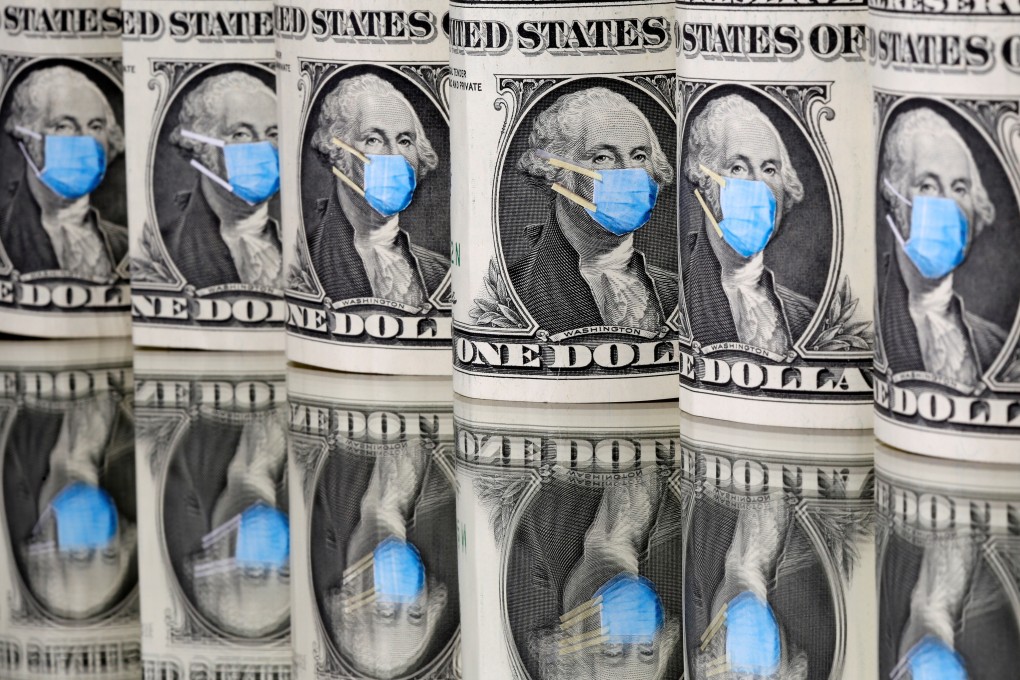The View | How the coronavirus may deliver a shock to the US dollar
- US domestic saving, already depressed, is headed deep into negative territory. This is likely to lead to a record current-account deficit, and the US could see a 35 per cent dollar plunge over the next two to three years

Pandemic time runs at warp speed. That is true of the Covid-19 infection rate, as well as the unprecedented scientific efforts to find a vaccine. It is also true of transformational developments playing out in pandemic-affected economies.
It may not be so simple. A sudden stop – long associated with capital flight out of emerging markets – often exposes deep-rooted structural problems that can impair economic recovery. It can also spark abrupt asset-price movements in response to the unmasking of long-simmering imbalances.
Domestic saving, already depressed, is headed deep into negative territory. This is likely to lead to a record current-account deficit and an outsize plunge in the value of the dollar.

05:55
What if Covid-19 is here to stay? Why we may need to prepare for the coronavirus becoming endemic
No country can afford to squander its saving potential – ultimately, the seed-corn of long-term economic growth. That is true even of the United States, where the laws of economics have often been ignored under the guise of “American exceptionalism”.
